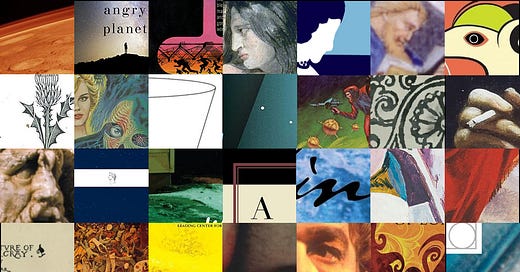Fifty brief book reviews
This end-of-year post reflects on the 50 books I read and finished in 2023. These short summaries include all books begun in 2022 but finished in 2023. Not included are books only partially read or not finished. Excluded are all books of The Bible. Of the books on this list, 42% of them were listened to as audiobooks. The genres of these books are broken down in the pie chart below:
It ought to go without saying that much of value in these books remains uncaptured in the one-paragraph opinions to which they are here reduced.
Weir, Andy. The Martian.
Andy Weir’s hard science fiction novel The Martian tempers meticulous research with wry, gallows humor. The Mars-mission architecture Weir borrowed for The Martian derives from Robert Zubrin’s 1996 nonfiction book The Case for Mars: The Plan to Settle the Red Planet and Why We Must, written during Zubrin’s employment at Martin Marietta, the corporate precursor to Lockheed Martin. The lonely protagonist of The Martian, Mark Watney, awakes alone on the red planet to his space suit’s low-oxygen alarm beeping. After a NASA mission mishap, the stranded Watney does everything in his power to preserve his own life and to communicate his situation to anyone on earth who might rescue him. One memorable predicament in the novel had Mark Watney panicking upon realizing he had been breathing mostly Hydrogen inside his habitation unit.
Chambers, Becky. The Long Way to a Small, Angry Planet.
Human beings in The Long Way to a Small, Angry Planet are merely one intelligent life form among many, a species no more capable than the otherworldly creatures holding greater galactic authority. The story takes place mostly onboard a freelance delivery vessel, the Wayfarer. The protagonist Rosemary Harper is human, but, of the rest of her crewmates, half are not. The spaceship’s artificial intelligence, who longs for a body of her own, is one such personality. An interspecies lesbian romance subplot in The Long Way to a Small, Angry Planet took me by surprise.
Dick, Philip K. The Penultimate Truth.
Philip K. Dick wrote The Penultimate Truth during his 1963-1965 amphetamine-mania, the most prolific writing period of his life. One of the more prescient inventions imagined in The Penultimate Truth, the “rhetorizer,” inspired my Medium post, Did Philip K. Dick Predict ChatGPT?
Alexander, Scott. UNSONG.
UNSONG is a sprawling alternate-history of late twentieth and early twenty-first century America. In this novel, a police arm of the United Nations regulates any speaking of God’s powerful, secret names. In fact, the book’s title is an acronym for “United Nations Subcommittee On Names of God.” An underground, rebel group evades these corrupt enforcers of Kabbalah licensure. UNSONG takes its puns seriously; the novel devotes interludes to untangling the etymologies of various American city-names. The entheogenic jokes and lighthearted plays-on-words are balanced by vivid descriptions of infernal torments and demonic military strategies. An entertaining rationalist exegesis on Jewish haggadah and Christian legends, UNSONG wraps up on a rather unsatisfying note.
Woolf, Virginia. A Room of One’s Own.
A Room of One's Own originated as a lecture Virginia Woolf delivered on the topic of women and fiction. For Woolf, the most accomplished writers (William Shakespeare and Jane Austen in fiction; Thomas Carlyle in nonfiction) wrote from a place without gender, crafting at parity the psychological profiles of male and female characters. Woolf urges women, socially marginalized from the writing trade for so long, to resist conforming to expectations set by male critics. Trepidations of being pegged as a woman writer may be overcome by embracing the feminine voice instead of suppressing it. A Room of One’s Own polemicizes in frank terms the gender-based discriminations would-be writers faced during post-Victorian England and before.
Keep reading with a 7-day free trial
Subscribe to Captive Liberty to keep reading this post and get 7 days of free access to the full post archives.




